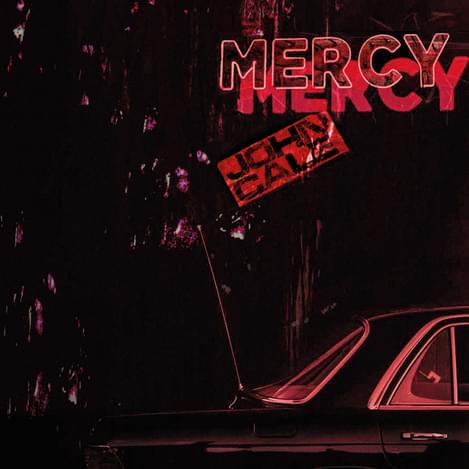Mercy is John Cale refusing to go away quietly
"MERCY"

Though the word is used far too frequently in modern parlance, John Cale is what one might think of as a legend.
In the interests of brevity, let's just say that although he was active and already doing great things in the mid-60s, Cale’s legendary career starts in earnest in 1967.
That year, John Cale and his bandmates in The Velvet Underground (with special guest chanteuse Nico) released what some people believe is the greatest album ever made. A year later, The Velvet Underground (sans Nico) released one of the very first - and very best - experimental rock albums ever made. By the time their third album came around, Cale had left the band and Lou Reed (more on him later) shared control of the group with new bassist Doug Yule.
Since then, the man has been relentless. He produced the first albums by The Stooges, The Modern Lovers, Patti Smith, Squeeze and The Happy Mondays - and the final albums by Nico and Siouxsie & the Banshees. He's worked with Brian Eno, Nick Drake, Manic Street Preachers, Terry Riley, Kevin Ayers, Kelly Lee Owens… He even found time to release a collaborative album with Lou Reed - Songs for Drella - that paid homage to one of their earliest champions, Andy Warhol.
Not content with all those wonderful collaborations, he also released an incomparable body of work in his solo career, having mastered sepia-toned bucolic folk rock (Paris 1919); dense and knotty art rock (Slow Dazzle, Fear, Honi Soit, HoboSapiens); crisp pop rock (the underrated Walking on Locusts, as well as Artificial Intelligence and Spooky Adventures in Nooky Wood); and, in Vintage Violence and Music For A New Society, two truly original masterpieces.
You could say, with certainty, that he’s pretty much done it all.
So with Mercy, his seventeenth solo album, Cale has precisely zero to prove. He's 80 (turning 81 in March), will shortly be embarking on a tour of the UK, and appears to have found more rich sources of inspiration. His unrivalled collaborative approach is also here in full force, with names from Animal Collective and Dev Hynes to Weyes Blood and at least two of Fat White Family all making pronounced contributions.
While it’s not his greatest studio album, or even his best since the turn of the millennium, Mercy is a great example of all that Cale does well, and a real triumph. It's one of the most tonally consistent albums he's ever done.
Cale wrings the very best out of his team of collaborators, and in turn provides them with a variety of sonic canvases upon which to paint their auditory brushstrokes. It’s also, strangely, an excellent entry point to his solo work for newcomers – because every album will be the first album somebody hears by an artist.
The first track – the title track – opens proceedings with a delicate, washed-out feel, like being on the ocean at night. Underneath all the waves and the hymnal vocals is a strong, insistent rhythm that evokes both a heartbeat and a headache. It's a fine balance, wonderfully executed.
Then there's a soft left turn into the almost ghostly haze of “Marilyn Monroe's Legs (beauty elsewhere)”, featuring Actress. The sibilant digital mist that covers the whole song conjures a haunting atmosphere – something Cale has been exploring for his entire career.
“Noise of You”, with its blocky, synthetic textures, evokes Cate Le Bon’s recent work and the very earliest of synthesizer explorations in the pop realm. “Story of You” (feat. Weyes Blood) pushes at many of the same pleasure zones, but does so over an extended runtime of seven-and-a-half minutes. It's a wonderful exercise in restraint.
There are other highlights – from the stately “Night Crawling” to the muscular ambient pop of “Not the End of the World”. The Fat White Family collaboration, “The Legal Status of Ice”, and the Animal Collective feature (“Everlasting Days”) both add different textures, but both put Cale’s voice right at the centre of proceedings.
The final – and best – track, “Out Your Window”, allows Cale to go all the way back to the start to add some kind of bookend to his career. It sounds like an update of the sounds found on his very first solo albums, and it's all the better for it.
Despite it being over 55 years since he first released an album, John Cale still refuses to go away quietly. There’s a Dylan Thomas quote in that, one supposes, but that’s too easy. More fitting, perhaps – especially considering the collaborative approach, and the willingness to take risks – would be a few words from arguably his finest ever song, “Big White Cloud”, from his finest album, Vintage Violence: “After all is said and done / Everything is just like it began.”
Get the Best Fit take on the week in music direct to your inbox every Friday

Tunde Adebimpe
Thee Black Boltz

Julien Baker & TORRES
Send A Prayer My Way

Bon Iver
SABLE, fABLE





